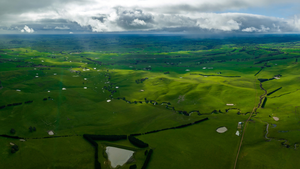Nestlé is strengthening agricultural science expertise with the launch of the Nestlé Institute of Agricultural Sciences, a new venture tasked with accelerating the company’s shift to regenerative agriculture and other practices that lower carbon emissions.

The new institute will focus on the areas of plant science, dairy livestock and agricultural systems science. In close collaboration with internal and external partners, it will assess and combine science-based solutions to improve the nutritional and sensorial qualities and the environmental impact of agricultural raw materials.
“Our transition toward a regenerative food system is enabled by agricultural science and new agricultural technologies,” said Stefan Palzer, Nestlé CTO. “The new institute will accelerate the translation of science into concrete solutions that can be implemented at farm level, to support farmers globally in improving their environmental footprint, in reducing food and nutrient losses, and in better adapting to climate change while ensuring the quality of the raw materials they produce.”
The institute builds on the Swiss food giant’s existing work and expertise in agricultural science. Programs already being implemented include the company’s sustainable cocoa and coffee sourcing plans—the Nestlé Cocoa Plan and the Nescafé Plan. The research has yielded scientific discoveries such as the recently announced high-yield, drought and disease resistant coffee varieties. Nestlé experts are also working on identifying the most suitable pulses and grains to provide low carbon, plant-based alternatives to meat, seafood and dairy.
This strong focus on plant science will be further strengthened and extended to additional crops. The institute will also accelerate the work with external partners to contribute to reducing emissions in dairy farming, to develop regenerative agriculture practices, and to improve biodiversity and soil health. The institute will also explore new approaches to upcycling agricultural side streams to reduce nutrient loss and food waste along the agricultural value chain.
“The work in agricultural sciences will complement our broad expertise at Nestlé Research, ranging from food safety to health science, material science and packaging,” said Isabelle Bureau-Franz, head of Nestlé Research. “We will leverage our scientific breadth to drive holistic approaches, contributing to concrete solutions and innovation applied throughout the value chain, including in products.”
The institute will work closely with academic institutions and research organizations, start-ups, industry partners and farmers to assess and develop science-based solutions and adapt them for implementation and scale-up across the company’s supply chain, while having a positive impact on the livelihoods and incomes of farmers. It will rely on new and existing collaborations, such as the research program with ETHZ to reduce the carbon footprint of agricultural products.
The institute will be based in state-of-the-art facilities in Lausanne, Switzerland, which are slated to be formally inaugurated later this year. It will also include the company’s plant science unit in France, as well as existing cocoa, coffee, and dairy research farms based in Ecuador, Côte d'Ivoire, Thailand and Switzerland.
About the Author(s)
You May Also Like






